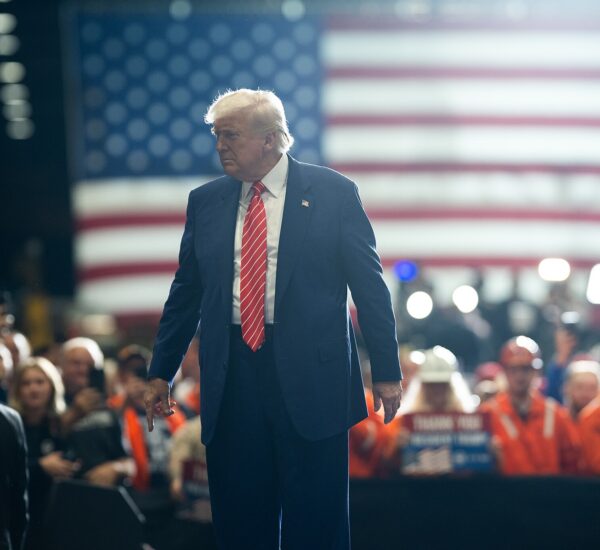This is a surprising turn of events.
A recent ruling by a federal judge has blocked the Trump administration’s efforts to enforce parts of an executive order aimed at targeting Perkins Coie, a well-known law firm with ties to the Democratic Party. The law firm became a focal point due to its involvement in opposition research during the 2016 presidential campaign, specifically its connections to the investigation into President Donald Trump’s supposed ties to Russia.
When President Trump returned to office in January, he signed several executive orders, including one that aimed to punish Perkins Coie by stripping security clearances from its lawyers. The administration’s stance was that the law firm’s actions were part of “dishonest and dangerous activity” that posed a national security threat. In response, Perkins Coie filed a federal lawsuit, arguing that it was being unfairly targeted for its work.
On Wednesday, U.S. District Judge Beryl Howell, who was appointed by former President Barack Obama, granted a temporary restraining order to halt the enforcement of the executive order. Howell’s ruling came just a day after the law firm filed its lawsuit, which claimed the order was both legally and constitutionally flawed. The judge expressed concerns that the executive order could set a dangerous precedent, potentially stifling the ability of lawyers to represent clients with unpopular or politically contentious views.
Howell emphasized the importance of maintaining a legal system where justice is fairly administered, and where lawyers are not punished for their clients’ political affiliations or the causes they represent. “The rule of law is fundamental to our democracy, and undermining it for political reasons threatens the very fabric of our judicial system,” Howell wrote.
While the legal battle is ongoing, Trump’s administration has maintained that the executive order is necessary to protect national security and preserve the integrity of classified information. However, critics argue that it undermines core American values of fairness and due process.
Attorney General Pam Bondi’s chief of staff, Chad Mizelle, defended the administration’s actions, asserting that the President has the right to act against any entity he deems a national security threat. Meanwhile, Perkins Coie contends that the order has already led to financial hardships as government contracts with the firm were canceled.
This case highlights the growing divide over the role of government in regulating the legal profession and the delicate balance between national security and individual rights. President Trump’s supporters argue that this is part of his broader effort to dismantle the “deep state” and ensure that those who are perceived to be undermining the nation’s interests are held accountable. However, detractors view the order as an overreach that could have chilling consequences on the legal profession and the rights of individuals to receive fair legal representation. With the ruling being only temporary, it’s clear this battle over executive power and legal fairness is far from over.






No judge can interfere with Trump’s orders now. If they do, they will go to prison for treason. Trump has declared military law. Now no one can stop him. I am elated about this.